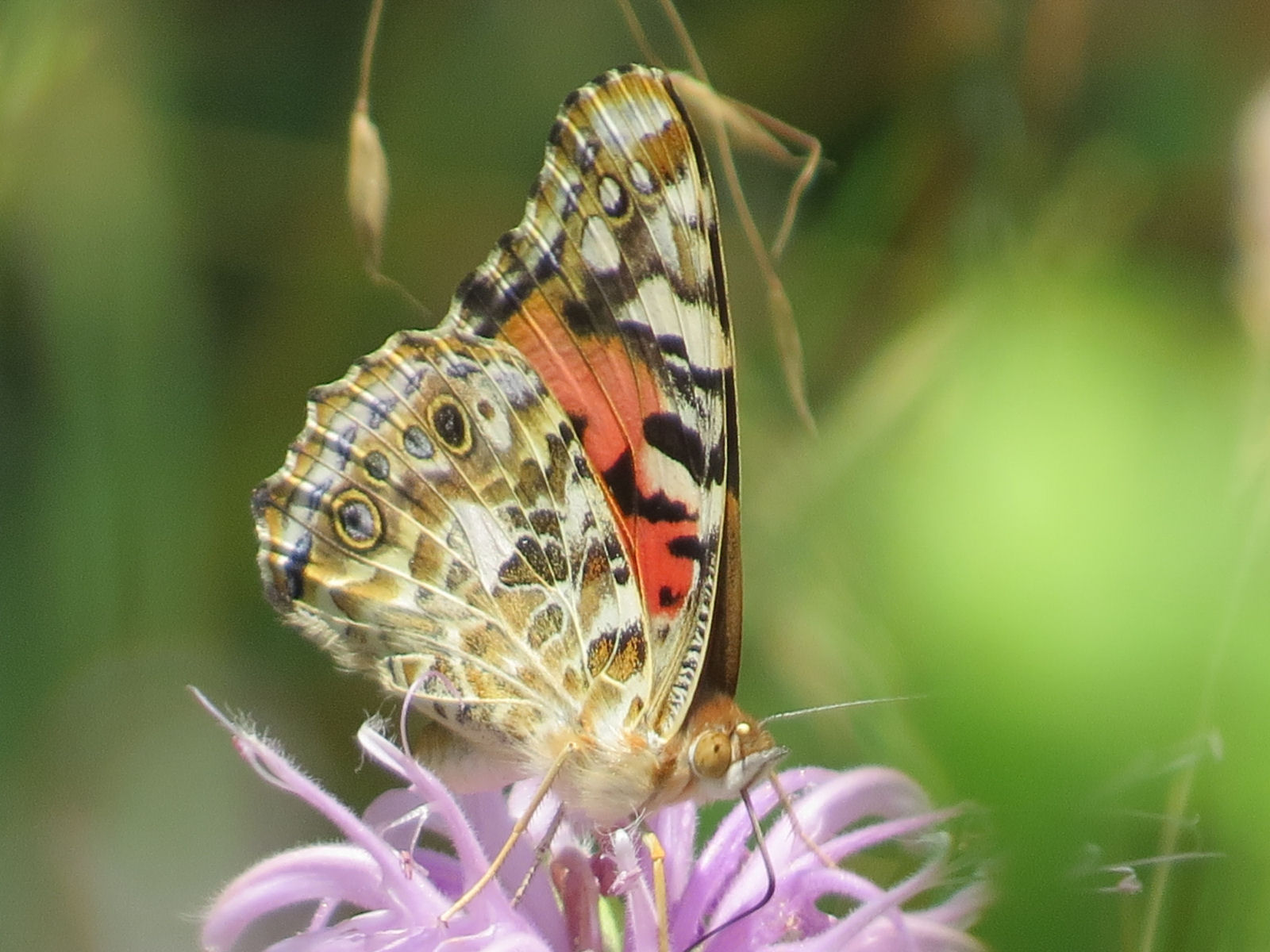
American Lady
Notes and Changes since last report
- It was 90°F, partly cloudy and breezy on July 27, 2022.
- 21 butterfly species made for a good day.
- Swarms of northern broken-dash were swirling above the back Old Hayfield.
- This week's trail report covers the Wappinger Creek Trail side of the trail system.
The Trails
- With August just around the corner, closely mowed grass was starting to brown.
- A hint of goldenrod yellow was beginning to appear across the front Old Hayfield.
- Spotted knappweed had attracted an American copper.
- Again the most common non-skipper was common wood-nymph.
- A silver-spotted skipper surprised me by going under a leaf, presumably for shade.
- It used to be a surprise, but giant swallowtail has been gracing our gardens for several years now - it had always been a more southern species.
- The bold yellow expanse below makes id easy, as does the pattern of yellow stripes on black above.
- Ah, but how lighting changes everything!
- A well worn great spangled fritillary appeared to have dodged a bird attack loosing just a bit of hindwing.
- Wow, another surprise was American lady. There is so much going on and with the screaming pink it is hard to notice the lilac appointments.
- A flash of orange across the Sedge Meadow Trail, then nothing... a question mark doing its best loose bark impression.
- The silvery arc and dot made the namesake question mark. In this photo, there is an extra dark spot to distinguish it from the similar eastern comma.
- Down along the damp and sunny part of the trail, Appalachian browns were perched or patrolling in the sun.
- In the back Old Hayfield, a monarch was visiting the wild bergamot.
- Every gap in the field held a web of a large black and yellow Argiope spider - this one cautiously attended by a much smaller male.
- Everything was so active in the sun and heat, but finally there was a shot at the olive and maroon hummingbird clearwing.
- The similar snowberry clearwing is more black than maroon and has a stripe from the eye down towards the legs.
- A dun skipper was taking a break from feeding.
- The little white dots - especially the notched, square one - indicate it's the female. The male has no dots.
- Little orange mint moths were common today.
- Tough to separate from the dun skipper, the Northern broken-dash has a thicker hindwing spot band, usually with a bump to make it look like a "3".
- Above, the distinction is much greater. Here, the female has white dots where the male has orange..
- Down on the Wappinger Creek Trail, an ebony jewelwing paused. Again, white dots indicate the female.
- Invasive Japanese stilt grass was getting big enough to be easily recognized. The shiny mid-rib separates it from similar grasses.
- Mind the stinging nettle on both sides of the path.
- The less familiar wood nettle's flower should be a hint even if the leaf looks innocent.
- Cool and quiet was the scene at the Appendix - the end of the trail today.
- It took some patience, but one little wasp was seen flying around the mounds. There must be a schedule to be discovered.
- Next week: the Cary Pines Trail the side of the trail system.
Sightings
Birds
Moths
Plants
| Butterflies
|
